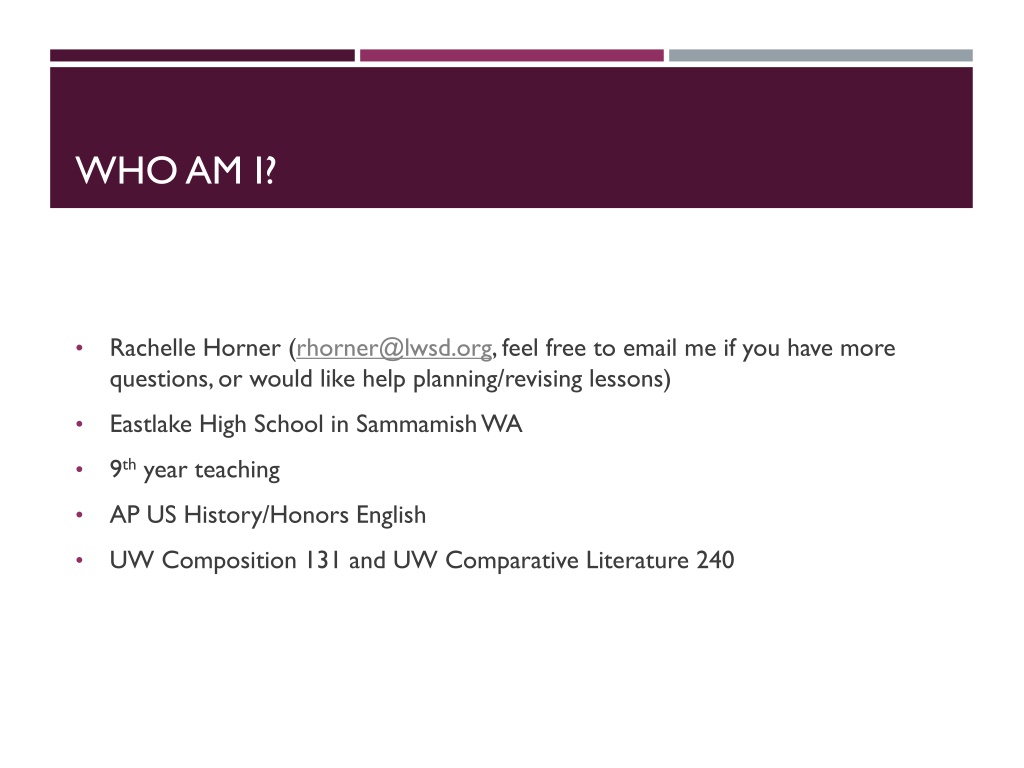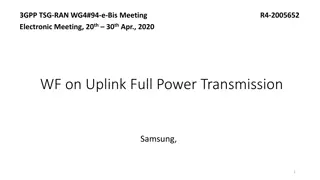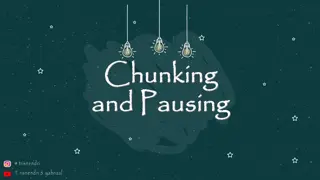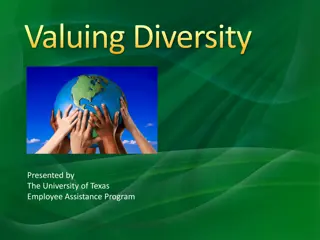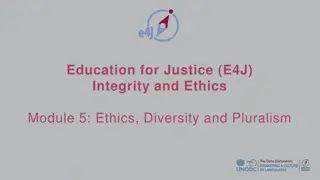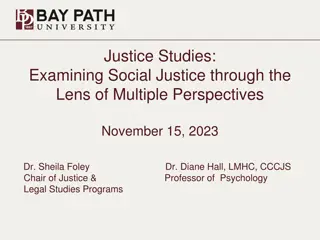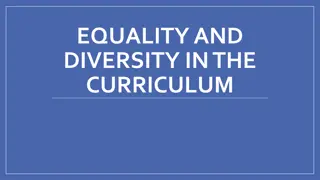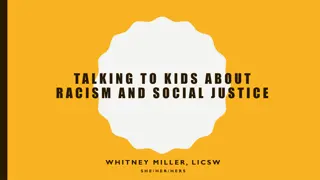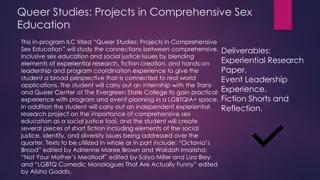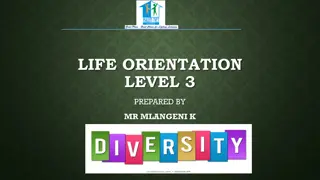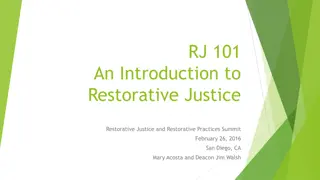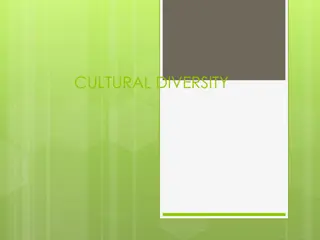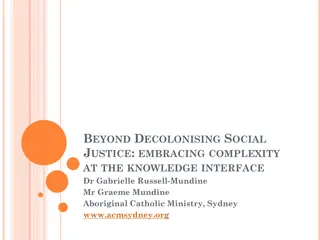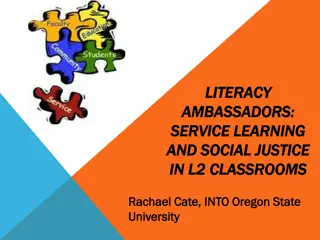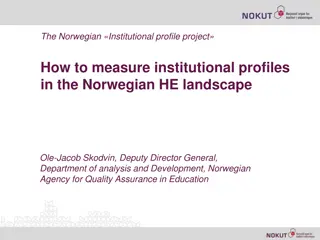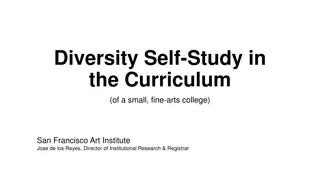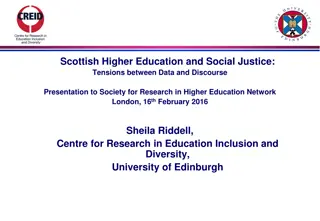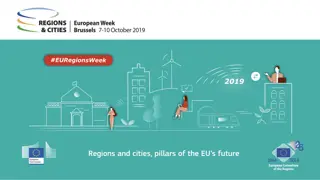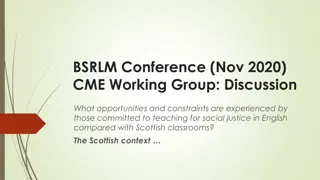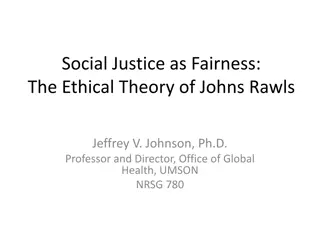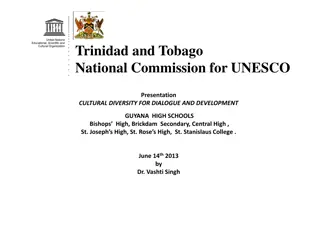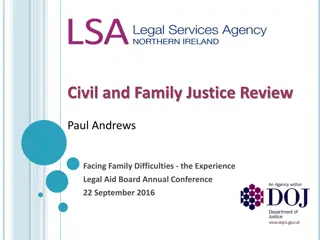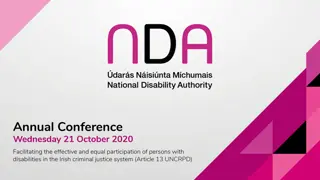Embracing Diversity and Social Justice in Education
Rachelle Horner, a dedicated educator at Eastlake High School, illustrates her approach to teaching through the lens of social justice and foregrounding issues of diversity, race, and equity. She emphasizes themes of American Ethnic English, power dynamics, and privileging voices often marginalized. Despite facing challenges in teaching social justice, Rachelle encourages open dialogue, self-reflection, and addressing privilege to foster understanding and inclusivity. While facing pushback, she turns it into teachable moments and emphasizes the importance of empathy and humility in learning.
Download Presentation

Please find below an Image/Link to download the presentation.
The content on the website is provided AS IS for your information and personal use only. It may not be sold, licensed, or shared on other websites without obtaining consent from the author. Download presentation by click this link. If you encounter any issues during the download, it is possible that the publisher has removed the file from their server.
E N D
Presentation Transcript
WHO AM I? Rachelle Horner (rhorner@lwsd.org, feel free to email me if you have more questions, or would like help planning/revising lessons) Eastlake High School in Sammamish WA 9thyear teaching AP US History/Honors English UW Composition 131 and UW Comparative Literature 240
FOREGROUNDING ISSUES OF DIVERSITY, RACE, AND EQUITY THAT INSPIRES THOUGHTFUL, ENGAGED RESPONSE FROM YOUR STUDENTS I teach through the lens of social justice All of my lessons, and both sequences foreground these issues How do I do this? Theme: American Ethnic English and Power, Privilege and Marginalizing the Other. Start the year with Class Norms Example Lesson: Hawaiian Creole Reveals Biases (both individual and societal)- see next slide Allows for Self Reflection Creates a discussion for how we will talk about difficult or controversial issues Sequence One Calendar and assignments are on the UW Engl 131 workspace
From your Discussion of the Course Syllabus Here is what you said about the two different languages Hawaiian Creole American Standard English Simplistic Inappropriate to deliver important information Bad spelling Bad grammar Improper English Incorrect English Broken English It s like speaking English with an accent Distracting Slave language Poorly written Not for white kids Not written by a white person Unintelligent Uneducated Joke/Humorous Slang/Ghetto Gang Language Weird What poor people speak It angers me Uncivilized First grade level Laid Back Colloquial Not written by someone with a master s degree Ignorant Ebonics Unprofessional Ebonics/stereotypic al Jamaican/Indian accent Terrible English Sounds like a special needs person Proper English Correct English For Educated People Normal English What everyone Speaks Discuss!
CHALLENGES TO TEACHING SOCIAL JUSTICE AND MAKING MARGINALIZED STUDENTS FEEL UNDERSTOOD Push Back What to do Address it head on and turn it into a teaching moment Bring your own stories into the classroom Don t shut a student down Making marginalized students feel understood Address your privilege First know that you DON T know and be willing and humble enough to learn
SUPPORT FROM MY SCHOOL.? Yes and No .
BRIDGE BETWEEN HIGH SCHOOL AND COLLEGE Some Materials CFI Mouther Tongue -Amy Tan Cabral s 131 Course Syllabus- Cathryn Cabral If Black English Isn t a Language, Then Tell Me, What Is?- James Baldwin How to Tame a Wild Tongue- Gloria Anzaldua Arts of the Contact Zone- Mary Louise Pratt Other readings Distress of the Privileged- Doug Muder Da State of Pidgin Address-Tonouchi Unmasking the Myth of the Model Minority- Benji Chang and Wayne Au Mix complex pieces with on level pieces Discussion
